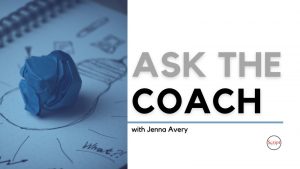In this month’s “Ask the Coach” article, I’m responding to a writer about script marketing, who says:
“Hello, I come by this way to be informed about where to send my 44 movie scripts? I sent it to CAA (Creative Artists Agency) and wrote to Steven Spielberg… and they don’t answer. I called CAA by cellphone and they turned my call off. Can you please help me make the next steps?”
There are a number of aspects to this question, so I’ve addressed them one-by-one. Here’s a quick high level view of the article’s main points:
- Be aware the signals you’re sending.
- Understand who you’re approaching.
- Recognize marketing one script at a time will position it best.
- Pick your best script to market first.
You’ll want a professional, simple, and direct query letter that positions your script as attractive to industry professionals and demonstrates that you can clearly convey both the story and what makes it marketable.
I’d love to answer them for you in my column.





 Note from Jenna: This guest post from one of my screenwriting colleagues and best friends, Isabel Holtreman. Isabel is a talented writer and is one of my most trusted feedback sources, both for my writing itself and for emotional support around the challenges of writing. I’m thrilled she was willing to take the time to talk with us today about navigating the emotional ups and downs of writing, and how she does it.
Note from Jenna: This guest post from one of my screenwriting colleagues and best friends, Isabel Holtreman. Isabel is a talented writer and is one of my most trusted feedback sources, both for my writing itself and for emotional support around the challenges of writing. I’m thrilled she was willing to take the time to talk with us today about navigating the emotional ups and downs of writing, and how she does it.
